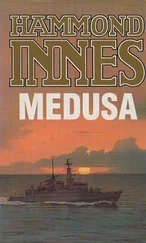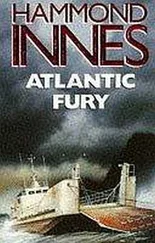Hammond Innes - The Lonely Skier
Здесь есть возможность читать онлайн «Hammond Innes - The Lonely Skier» весь текст электронной книги совершенно бесплатно (целиком полную версию без сокращений). В некоторых случаях можно слушать аудио, скачать через торрент в формате fb2 и присутствует краткое содержание. Жанр: Прочие приключения, на английском языке. Описание произведения, (предисловие) а так же отзывы посетителей доступны на портале библиотеки ЛибКат.
- Название:The Lonely Skier
- Автор:
- Жанр:
- Год:неизвестен
- ISBN:нет данных
- Рейтинг книги:3 / 5. Голосов: 1
-
Избранное:Добавить в избранное
- Отзывы:
-
Ваша оценка:
- 60
- 1
- 2
- 3
- 4
- 5
The Lonely Skier: краткое содержание, описание и аннотация
Предлагаем к чтению аннотацию, описание, краткое содержание или предисловие (зависит от того, что написал сам автор книги «The Lonely Skier»). Если вы не нашли необходимую информацию о книге — напишите в комментариях, мы постараемся отыскать её.
The Lonely Skier — читать онлайн бесплатно полную книгу (весь текст) целиком
Ниже представлен текст книги, разбитый по страницам. Система сохранения места последней прочитанной страницы, позволяет с удобством читать онлайн бесплатно книгу «The Lonely Skier», без необходимости каждый раз заново искать на чём Вы остановились. Поставьте закладку, и сможете в любой момент перейти на страницу, на которой закончили чтение.
Интервал:
Закладка:
CHAPTER TWO
Joe Wesson looked tired and cross when I met him at breakfast the next morning. He had been up until the early hours playing stud poker with two Americans and a Czech. ‘I’d like to get Engles out here,’ he rumbled morosely. ‘I’d like to put him on top of that damned col, cut the cable of the slittovia and leave him there. I’d like to give him such a bellyful of snow that he’d never even face ice in a drink again.’
‘Don’t forget he’s a first-class skier,’ I said, laughing. Engles had been in the British Olympic team at one time. ‘He probably likes snow.’
‘I know, I know. But that was in his early twenties, before the war. He’s got soft since then. That’s what the Army does for people. All he wants now is comfort — and liquor. You think he’d enjoy it up here in that hut — no women, no proper heating, nobody around to tell him how marvellous his ideas are — probably not even a bath?’
‘Anyway, there’s a bar,’ I told him.
I I He gave a snort. ‘Bar! I’m told that the man who runs that bar can trace congenital idiocy back through his family for three generations, that he specialises in grappa made from pure methylated spirits and, furthermore, that he is the dirtiest, laziest, stupidist Italian any one has ever met — and that’s saying something. And here I’m supposed to drag my camera up to the top of that God-damned col and prance about in the snow taking pictures to satisfy Engles’s megalomania. And I don’t feel like going up a slittovia this morning. Those sort of things make me dizzy. It was constructed by the Germans and the man who owned it was arrested only a fortnight ago as a German War Criminal. The cable is probably booby-trapped.’
I must admit that when I saw the thing, I didn’t like it much myself. We stood at the bottom of it and looked up to the rifugio more than a thousand feet above us. Its gabled roofs and wooden belvedere were just visible at the top of the sleigh track cut through the pinewoods. It was perched high on the shoulder of Monte Cristallo, the great bastions of the mountain towering above it. It was about as remote from civilisation as an eagle’s nest.
Our chauffeur got out of the car and shouted, ‘Emilio!’ A little man, wearing British battle-dress and the most enormous pair of snow boots, emerged from the concrete building that housed the cable plant. The boots dated back to the German occupation when there had been a flak position in the Tre Croci pass.
The snows had only just started down in Cortina, for it was early in the season yet. But up here it was already getting thick and the previous night’s fall lay like a virgin blanket over everything.
We transferred our gear to the sleigh, putting our skis in the ski rack at the back. The black case of my typewriter and Joe Wesson’s camera equipment seemed out of place. We climbed in. The man with the snow boots got up behind the steering wheel. He pulled over a switch and the cable tightened in front of us so that here and there it jerked clear of the snow. A soft crunching sound and we were gliding forward along the snow track. Almost immediately we were on the slope and the sleigh tilted upwards in an alarming fashion so that I found myself lying on my back rather than sitting on the seat. It was a peculiar and rather frightening sensation. We lost sight of the rifugio. We were looking up a long white avenue between the dark pines. It rose straight into the blue sky and was steep as the side of a house.
I looked back. Already the square Tre Croci hotel was no bigger than a large black box resting on the white blanket of the pass. The road to Austria snaked through the pass like a dirty brown ribbon. The sun shone, but there was no sign of that ‘sunny snow paradise’ referred to in the tourist brochures. It was a lost and barren world of snow and black forest.
Ahead of us, the cable was strung taut like the string of a violin. There was no sound save the soft slither of the sleigh runners on the snow. The air was still between the dark pines, We were climbing at an angle of about sixty degrees. Joe leaned across me and spoke to the driver in English. ‘Do these cables ever break on these things?’ he asked.
The driver seemed to understand. He smiled and shook his head. ‘No, no, signore. They have not never break. But the funivia—’ that was the overhead cable-way down at Cortina, and he let go of the wheel for an instant and spread his hands in an expressive gesture. ‘Once he break. Pocol funivia. Molto pericoloso.’ And he grinned.
‘What happened?’ I asked.
‘The cable, he gone. But the cable which draw him hold, so they fall twenty metres and do not touch earth. The passengers, they were much frightened.’
‘Suppose this cable goes?’ I enquired.
‘It no go. It is a cable of the tedesci.’ Then he crinkled the corners of his blue eyes. ‘But if he do go — you see, signori, there is nothing that will not stop you.’ And he pointed with a grin down the frightful track behind us.
‘Thanks very much,’ I said. And I was as glad as I have ever been to get out of that perilous vehicle at the rifugio.
It was large for a rifugio. Most of them only cater for the day visitor and have no sleeping accommodation. Col da Varda, however, had been designed to cater for those who come to the Dolomites for skiing alone and who do not want to dance till the early hours.
It was timber-built of pines from the woods and had been constructed two years ago by the one-time owner of the Excelsior. It was built over and around the concrete housing of the cable machinery for the slittovia. With Teutonic thoroughness the Germans had placed the electrically operated haulage plant at the top of the sleigh track. The hut itself was a long building with great feet of pine piles driven deep into the snow. Its main feature was a large belvedere or platform, protected by glass like the bridge of a ship. It looked south and west across Tre Croci and down the pass to Cortina. The view was a magnificent study in black and white in the sunshine. And though it was still early and we were nearly 8,000 feet up, it was already warm enough to sit outside.
Back from the belvedere was a large eating room. It was lined with resined match-boarding and had big windows and long pine tables with forms on each side. In one corner was a typically Italian bar with a chromium-plated coffee geyser and, behind it, a shining array of bottles of all shapes in the midst of which swung the brass pendulum of a cuckoo clock. Between the bar and the door leading to the kitchen and the rest of the hut was a big tiled stove of Austrian pattern and there was an old upright piano in the far corner.
We went through the door towards the kitchen. Our first sight of Aldo was a head popped through the servicing hatch in the kitchen door. It was a hairless head, sparsely garnished with a few grey tufts and both scalp and face gleamed as though freshly polished. The eyes had a dumb look and the mouth smiled vacantly as though apologising for the rest of it. The man was an ape. A moment’s conversation with him convinced me of it. His smile was the only human thing about him. His brain was primordial. Joe Wesson said of him later that he was the sort of man who, if you told him to take away a plate and his hands were full of glasses, he would drop the glasses to pick up the plate. I asked him to show us to our rooms. He began to gobble at us confusedly like a turkey. His face became red. He gesticulated. Though his Italian was almost unintelligible, I gathered that he had received no booking. I told him to ring up the Splendido. I had seen a telephone at the end of the bar. He shrugged his shoulders and said he had no room anyway.
Читать дальшеИнтервал:
Закладка:
Похожие книги на «The Lonely Skier»
Представляем Вашему вниманию похожие книги на «The Lonely Skier» списком для выбора. Мы отобрали схожую по названию и смыслу литературу в надежде предоставить читателям больше вариантов отыскать новые, интересные, ещё непрочитанные произведения.
Обсуждение, отзывы о книге «The Lonely Skier» и просто собственные мнения читателей. Оставьте ваши комментарии, напишите, что Вы думаете о произведении, его смысле или главных героях. Укажите что конкретно понравилось, а что нет, и почему Вы так считаете.












